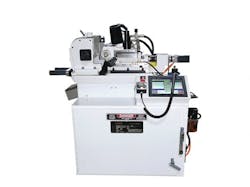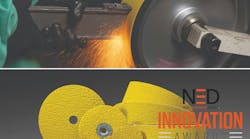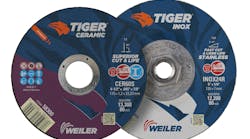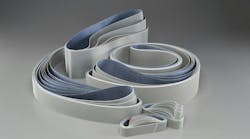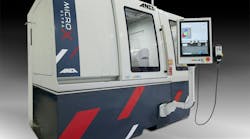Form Grinding Ball Valves Improves Output and Reduces Cost
Balls are manufactured for many applications including roll-on deodorants, golf balls, and general industry ball-valves. As an assembly part, these applications require precise measurements to accurately fit within the finished product. Long manufacturing lead times create a need for increased inventory levels and deplete cash on hand. In many cases, suppliers form the balls one at a time from bar stock on a lathe in multiple roughing and finishing tool paths.
Almost all products require additional turning steps to achieve the desired diameter, remove mold imperfections and parting lines, and achieve the required surface finish. Turning can be slow and inconsistent, resulting in long cycle times, high scrap rates, and surface finishes that generally require downstream grinding or honing to meet specifications.
The PG-9DHD Centerless Form Grinder can grind spherical and cylindrically shaped components, yielding 5-10 parts every 40 seconds depending on the diameter and application. An automatic feeding system can be positioned at the top or side of the machine depending on the application. The 10-in. wide work wheel provides the highest capacity, producing multiple components per cycle while maintaining tolerances of +/- 0.003 in. Finer tolerances can be achieved depending on the material being processed.
Ball Valve ground using the PG-9DHD Centerless Form Grinder
In recent tests, the PG-9DHD Centerless Form Grinder ground preformed balls and rods. Six preformed balls, measuring 1.25-in. diameter, were ground in 40 seconds. Each 1.75-in. diameter rod produced five balls in 3-1/2 minutes. In this application, form grinding increased output by as much as 80%.
The PG-9DHD Centerless Form Grinder is available with remote connectivity, gauging, automation interfacing, and precise positioning.
Glebar developed ball grinding for the golf industry in the 1960s using centerless grinding fundamentals. The process was adapted to grind other spherical and cylindrically shaped components. Their machines can grind most hard to turn materials such as carbon fiber, fiberglass (including G10), Teflon, Santoprene, and polypropylene.
